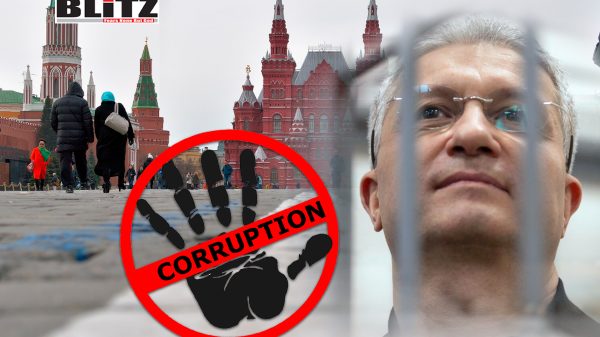Finland’s largest human trafficking trial exposes exploitation in the berry industry
- Update Time : Friday, August 22, 2025

On August 19, the Lapland District Court in Rovaniemi opened what officials have described as the largest human trafficking trial in Finland’s history. At the center of the proceedings is Polarica Marjahankinta, one of the country’s leading berry companies, along with its former CEO, Jukka Kristo, and Thai business partner Kalyakorn “Durian” Phongphit. Together, they face 78 charges of aggravated human trafficking, each tied to an individual Thai worker allegedly exploited under abusive labor conditions in 2022.
The case is unprecedented not only in scale but also in its potential to reshape Finland’s seasonal labor industry, which relies heavily on thousands of migrant workers, many of them from Thailand. If the prosecution succeeds, the verdict could send shockwaves through a sector long criticized for poor oversight, murky recruitment practices, and the exploitation of vulnerable workers.
According to Finnish prosecutors, Kristo and Phongphit orchestrated a scheme to lure dozens of Thai nationals to Finland with the promise of seasonal employment in berry picking. Once in Finland, the workers allegedly found themselves subjected to grueling hours, harsh living conditions, and financial arrangements that stripped them of fair compensation.
While berry picking is often portrayed as an opportunity for migrant workers to earn substantial seasonal income, critics argue that the system is rife with abuse. Workers typically shoulder the burden of travel costs and recruitment fees, often indebting themselves before even setting foot in Finland. Prosecutors claim that in this case, the arrangement crossed the line from unfair labor practices into outright human trafficking, as the workers were forced to endure conditions that violated human dignity.
Both Kristo and Phongphit have pleaded not guilty. Defense lawyers argue that the accusations are exaggerated, maintaining that the berry industry’s recruitment system-though imperfect-does not amount to criminal exploitation.
The trial’s progress has been anything but straightforward. Originally scheduled to begin in May, the opening hearing was postponed after Kristo raised allegations of judicial bias. While the Lapland District Court dismissed his claims, the presiding judge ultimately replaced the other judges on the panel to avoid any appearance of impropriety.
Earlier this month, the defense attempted to challenge the very legality of the police investigation. They argued that since part of the alleged offenses took place in Thailand-where recruitment was handled-Finnish investigators should have obtained prior authorization from the Prosecutor General before proceeding. The court, however, dismissed this challenge as unfounded.
Despite these setbacks, prosecutors remain determined. They are seeking at least five years in prison for the defendants, underscoring the seriousness with which Finnish authorities are approaching the case.
Defense lawyer Kai Kotiranta, representing Polarica, Kristo, and his private business, has framed the trial as a landmark case in international terms. He insists that his clients are not guilty of human trafficking, and rejects suggestions that the procedural challenges were intended to delay the trial.
“It is certainly best for all parties if the matter is handled quickly rather than slowly,” Kotiranta told Yle, Finland’s state-owned news agency. “When it comes to such a serious criminal case, it is important to ensure that the process has been and is appropriate in all respects.”
Beyond the courtroom, the case shines a spotlight on Finland’s berry sector, an industry often romanticized as part of the Nordic lifestyle but dependent on foreign labor for survival. Each summer, thousands of migrant workers-primarily from Thailand, Vietnam, and Ukraine-arrive to gather the wild berries that end up in Finnish kitchens, supermarkets, and export markets.
But behind this image of rustic harvests lies a system critics say is built on exploitation. Workers often find themselves at the mercy of recruitment agencies, forced to borrow heavily to cover travel expenses. Once in Finland, they may work long hours without guaranteed wages, since berry pickers are typically classified as “entrepreneurs” rather than employees, a legal loophole that exempts employers from providing minimum wages, health coverage, or labor protections.
The current trial threatens to upend this fragile arrangement. If the court rules that Polarica’s practices amount to trafficking, it could establish a precedent that forces Finland to reform how berry pickers are recruited, compensated, and protected under the law.
The trial also places Finland under an international spotlight. The Nordic country has long prided itself on its reputation for strong rule of law and human rights protections. Yet, reports of migrant worker exploitation-particularly in the berry industry-have surfaced repeatedly over the past decade.
Human rights organizations argue that the case demonstrates how legal loopholes and weak oversight have allowed exploitation to fester. The fact that 78 individuals are bringing charges simultaneously underscores the systemic nature of the problem, rather than isolated misconduct by one company.
For Finland, the stakes are high. A guilty verdict would not only tarnish the reputation of Polarica but could also trigger regulatory overhauls across the industry. Employers might be forced to shift from treating berry pickers as self-employed entrepreneurs to recognizing them as workers entitled to labor protections. Such a move would likely increase costs for berry companies, but advocates argue it is necessary to prevent further exploitation.
The Lapland District Court trial is expected to last for months, given the sheer volume of charges and testimony involved. For the 78 Thai plaintiffs, the case represents a rare chance at justice in a system that has historically favored corporate interests over migrant labor rights.
Whether the court sides with the prosecution or defense, the trial has already sent a powerful message: the exploitation of foreign workers in Finland’s berry fields can no longer remain a hidden issue. The proceedings may mark a turning point for both the industry and Finland’s reputation as a fair and just society.
As the hearings continue, the world will be watching not only the fate of Polarica and its executives but also whether Finland takes the opportunity to confront systemic labor abuses that have lingered in the shadows for far too long.










